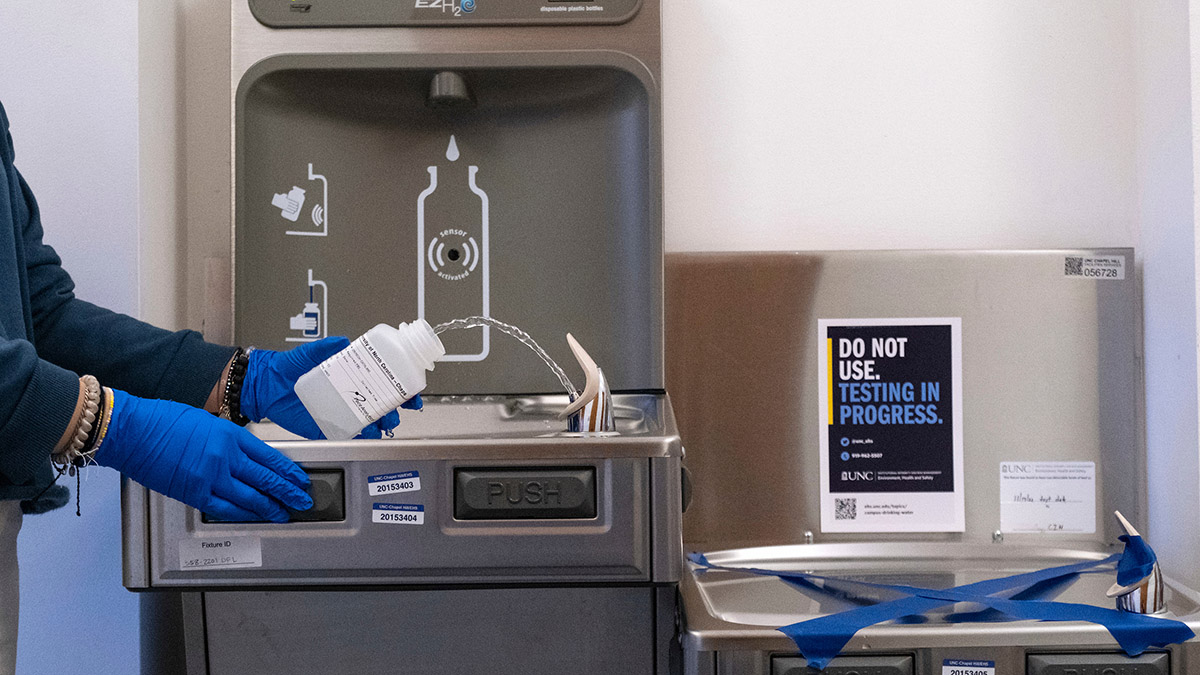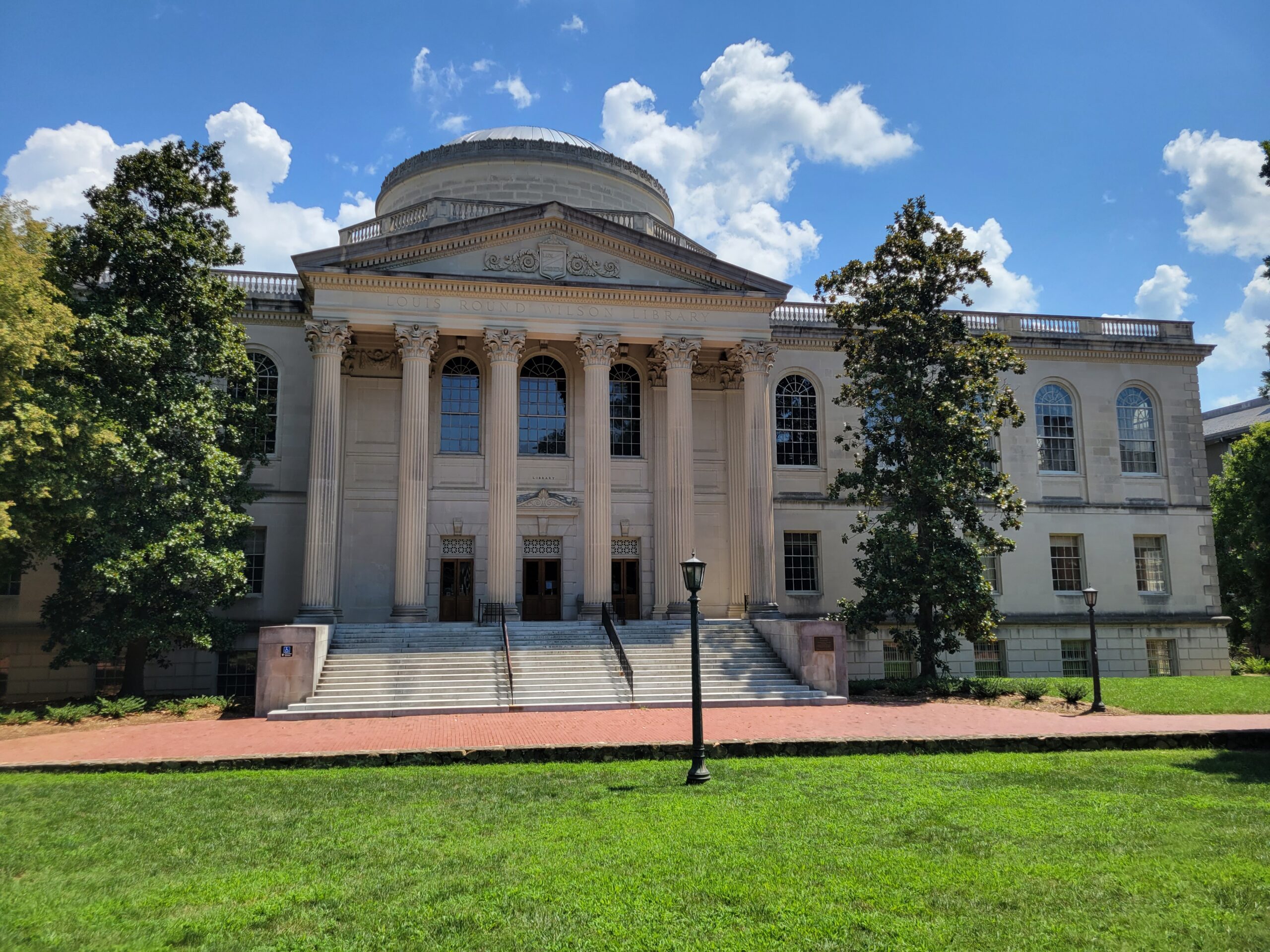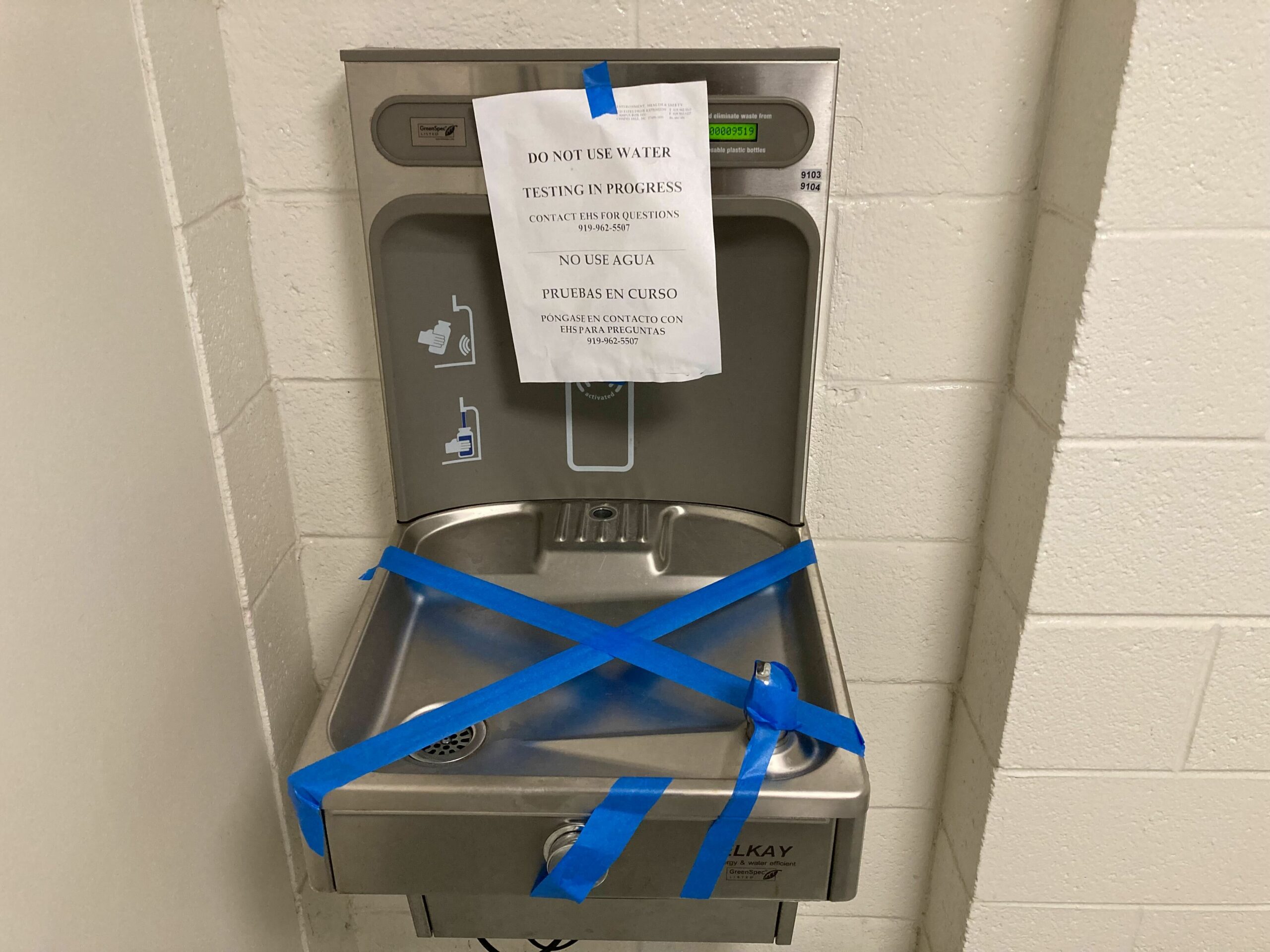As UNC continues its testing of older campus facilities for lead in the water, one residence hall saw nearly two-thirds of its in-room sinks return results with detectable levels of the chemical.
A release from the university’s media relations department on Tuesday said 57 of the 84 in-room sinks for Spencer Residence Hall returned tests with traceable amounts of lead — a number far exceeding any other campus buildings to date.
“The health and safety of our students, faculty, and staff is our priority,” said the university. “Environment, Health and Safety is now assessing the results for Spencer to learn more about the source.”
Spencer, which is a hall-style dorm, has communal bathroom and sink facilities for residents to use. The residence hall completed tests earlier in the month on its communal water fixtures, with three drinking fountains returning detectable levels of lead.
UNC specified in its message, however, that the 57 sinks more recently identified with lead are in students’ individual rooms. The fixtures are being shut down until the Environmental, Health and Safety department finishes investigating the problem. That is a change from other sinks returning detectable lead, as UNC previously said those buildings and sinks will remain on but will have signs encouraging people not to ingest the sink water.
UNC says it previously installed water coolers in the dorm after initial testing and plans to add more in coming days for residents to use.
Tuesday’s release said university representatives will be meeting with the students living in Spencer Hall and Campus Health continues to offer blood lead level testing for anyone in affected buildings.
While it takes a significant amount of ingested lead to cause health problems for adults, the Environmental Protection Agency states there is no safe exposure to the toxic metal in water. UNC’s Vice Chancellor for Institutional Integrity and Risk Management George Battle noted that fact in the release.
“The health and safety of our campus community is paramount,” Battle wrote. “We are taking an aggressive approach to resolve this situation and are working with multiple units across campus, as well as our faculty experts at the Institute for Environmental Health Solutions, UNC Institute for the Environment and the Gillings School of Global Public Health, and in coordination with OWASA and the Orange County Health Department.”
UNC first discovered trace amounts of lead in the water of fountains at Wilson Library in late August, prompting more testing. Since then more than a dozen buildings — many of which are among UNC’s oldest — have returned detectable levels of the chemical. Water quality and treatment officials say lead often does not come from the water source, but instead from fixtures and infrastructure. Lead pipes, lead solder and lead brass fittings, which were outlawed in 1986 amendments to the Safe Drinking Water Act, sometimes leech their chemicals into water if its sits for an extended period of time.

Wilson Library on UNC’s campus was the first facility to return traceable lead in tests run on historic drinking fountains.
The Environment, Health and Safety division’s lead testing across campus is being conducted in phases, according to UNC. Phase One, which consisted of checking water fixtures that potentially had lead components due to their age and construction, is reportedly complete. UNC said Phase Two is the review and testing of water fixtures in buildings built during or before 1930. The final phase will be testing water fixtures in buildings built in or prior to 1990.
Spencer Residence Hall was constructed in 1924, meaning it was tested as part of Phase Two. It and Stacy Residence Hall, which was built in 1938, were the first two residence halls UNC said returned poor lead results from tests in communal drinking fountains, having notified residents on Friday, October 14 of the affected fixtures.
Those concerned about exposure to lead are able to schedule blood lead level tests. Students and post-doctoral fellows can call Campus Health to make appointments, while UNC faculty and staff are encouraged to contact the University Employee Occupational Health Clinic.
To search through all conducted tests, visit UNC’s Environment, Health and Safety web page dedicated to lead tests. Tuesday’s release said the new fixture totals for Spencer Hall are expected to be added shortly.
Photo via University Housing/UNC-Chapel Hill.
Chapelboro.com does not charge subscription fees, and you can directly support our efforts in local journalism here. Want more of what you see on Chapelboro? Let us bring free local news and community information to you by signing up for our biweekly newsletter.








